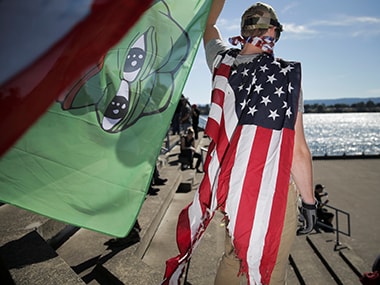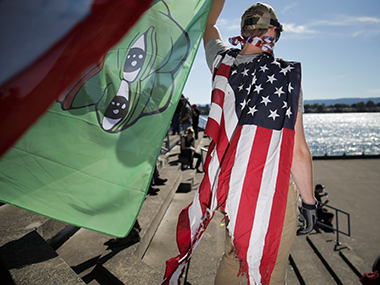Conventional narratives seem to **link social media use** and the creation of echo chambers to a rise in political polarisation. However, a study conducted by Brown University shows that this explanation is not backed up by the data. The researchers used data from the American National Election Study as well as microdata from Pew Research Center on social media use to come to the conclusion. [caption id=“attachment_4075449” align=“alignleft” width=“380”]  A man wearing a US flag at a right wing rally. Image: Reuters.[/caption] Jesse M. Shapiro, co-author of the study says, “We find that the groups least likely to use the internet experienced larger changes in polarization between 1996 and 2016 than the groups most likely to use the internet.” The increase in political polarisation was higher for older people than younger people. Age is also linked to social media use. Less than 40 percent of those who were 65 and older, and less than 20 percent of those who were 75 and older obtained information about the **2016 US Presidential Election** from online sources. The polarisation was higher in the 65 and above age group, than it was for the 18 to 39 age group. The study is called “ Greater Internet use is not associated with faster growth in political polarization among U.S. demographic groups” and has been published in the Proceedings of the National Academy of Sciences.
The researchers used data from the American National Election Study as well as microdata from Pew Research Center on social media use to come to the conclusion.
Advertisement
End of Article


)



